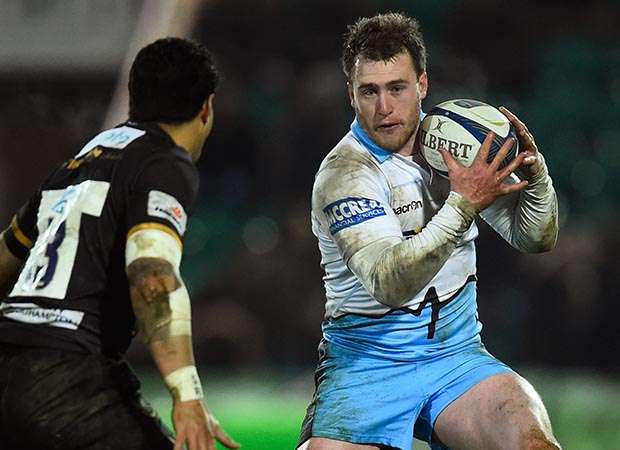
The big surprise was no representation from the Irish provinces, especially given the European dominance of Leinster and Munster from 2006-2012, and the emergence of Ulster. We’ve grown to expect a lack of Welsh regions in the knock-out stages, and the Scottish have been to the quarter-final party only on a few occasions – and let’s not start about Italian clubs – but this time the Pro12 has a serious situation on its hands.
If I was in control of the Pro12 I’d turn it on its head and look at the problems they face as a great opportunity. The clubs need to get together and ask why their league can’t be as exciting as the Super 18 in the Southern Hemisphere. That’s because the only way it can close the gap on the Premiership and Top14, with the huge financial advantage currently enjoyed by the French and English clubs, is for the Pro12 to become a more valuable property than it is now.
The only way it can do that is to provide great rugby that gets the fans on the edge of their seats. It is time that the Pro12’s mission was to make the league the most entertaining in the Northern Hemisphere – and they have the best mechanism of all to promote that brand of rugby because, in common with the Super 18, they have no promotion and relegation to worry about.
Given the freedom that gives coaches to play young players and try new tactics I’m amazed the Pro12 leaders haven’t worked out that the best way to develop their league is for their clubs to expand the skill levels of their players. It’s not as if they haven’t been shown the way.
When Joe Schmidt arrived in Dublin to coach Leinster several years ago he stated that he wanted to make Leinster the best passing side in Europe. He had the foresight to know that was a big missing skill in that squad at the time, and Schmidt managed to work his magic with a talented array of players who worked hard to achieve his vision – and it paid off.
Gregor Townsend has taken the time at Glasgow Warriors to look at the long term advantages of developing a side that could be very competitive rather than buy in overseas signings that could work short-term. Gregor has established a fantastic culture and playing attitude with players like Stuart Hogg, Finn Russell, Tommy Seymour, Mark Bennett, Jonny Gray and Leone Nakarawa. Like the Leinster of old, this squad has some serious potential and is learning quickly what’s required to be the best.
The Welsh regions struggle big time, and part of the reason has to be that their Wales internationals on dual contracts are restricted to playing only 16 games for their regional teams, excluding Pro12 play-offs and European knock-out matches. That makes 22 domestic games and nine European matches of which their best players can play only approximately half, and that would be tough on any team! It is also true that Wales don’t have anywhere near the numbers playing the game as England and France, and therefore the pool to pick from is more limited.
On the upside the Wales U20 team has just clinched a Grand Slam in a competition that has been dominated by England previously, and the signs are there that good young Welsh players are being produced. Now it needs enhancing by having ambitious and exciting regional teams performing in an aspirational league for these up-and-comers to want to play in.
There are still great players in Wales, Ireland and Scotland, and in the last two Lions tours that talent has been recognised with Celtic league teams enjoying an overwhelming head count advantage over the Aviva Premiership in the tour party, and rightly so. Add to that, the last four out of five Six Nations titles have been won by Wales and Ireland – although, ominously, England have just won a Grand Slam.
England, more than France, were very canny in restructuring European qualification. They ensured that Pro12 teams had to field a lot of full-strength sides in the league to make sure they secured a qualifying spot. Certainly the Irish players, more than the Welsh, have found it harder physically and mentally to play more domestic games than required in previous seasons, and that has had an impact on them in European Cup and international competition.
I would ask, instead, why the Pro12 cannot be as entertaining as the Super 18 and work back from there. The weather effects only about 30 per cent of the games, so that’s no excuse.
As for the players, if they aren’t as skilled as they could be then coaches must encourage them, because when you haven’t got the worry of relegation holding you back from teaching skills or giving young players a chance, there are no excuses. At the same time they must keep improving the rugby youth development programmes to make sure of continued success.
The Pro12 owners and head coaches – along with their national head coaches – plus some marketing gurus, have to get their heads together and work out the best way to make the league even more competitive and attractive to watch.
That means being brave enough to make the changes required in the way that Wasps have since re-locating to Coventry. Wasps now play at an amazing facility, the package is undeniably attractive, and they are creating a wonderful environment that will become infectious.
The finance people backing the Pro12 regions/districts/provinces have to start thinking smarter along with their respective unions and begin to plan together similar ventures to the one that Wasps have conjured up.
People talk about how scary it would be if England rugby got their act together and tapped in intelligently to the big financial and playing resource available. It might have started under Eddie Jones already – and who from Wales, Ireland and Scotland can stop the English clubs in next season’s European Cup?
When you think of the talent in the Welsh, Irish and Scottish national teams right now, and where it came from, there is no reason why they cannot compete with the English clubs in Europe. But for that to happen there has to be a change of attitude from those whose job it is to plan the future of the Pro12.
























